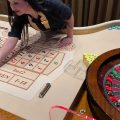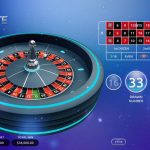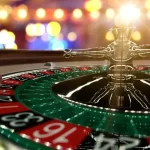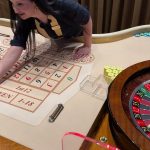
The spin of the wheel. The clatter of the ball. The collective intake of breath. Roulette is a symphony of chance, a game where pure luck is supposed to reign supreme. Yet, if you watch any roulette table for more than a few minutes, you’ll see players acting in anything but a random fashion. They have their “lucky” numbers, their complex systems, their can’t-miss strategies scribbled on napkins.
This is where the real game is played—not on the green felt, but inside the gambler’s mind. The psychology of roulette betting patterns is a fascinating window into how humans cope with uncertainty, how we tell ourselves stories to make sense of chaos, and why we often cling to beliefs that the cold, hard math says are simply wrong.
The Gambler’s Fallacy: Chasing the Ghost of Past Spins
Let’s start with the big one. You’ve probably seen it, or maybe even felt it yourself. The roulette wheel lands on black five times in a row. A voice in your head whispers, “It’s due for a red.” This, my friends, is the Gambler’s Fallacy in all its deceptive glory.
It’s the mistaken belief that past random events can influence future ones. Our brains are pattern-recognition machines—it’s what helped our ancestors spot predators in the tall grass. But at the roulette table, this instinct backfires. Each spin is an independent event. The wheel has no memory. It doesn’t care that it just hit black five times. The odds for the next spin are still just under 50/50 for a single-zero wheel.
We see a “run” and we project a narrative onto it, creating a sense of order where none exists. It feels like the universe has to balance itself out. In reality, you’re just betting against a ghost.
Illusions of Control: Your “System” and Why You Believe in It
Closely tied to the Gambler’s Fallacy is our deep-seated need for control. Humans hate feeling powerless. To combat this, we develop rituals and systems that give us a sense of agency. In roulette, this manifests as betting patterns.
Maybe you only bet on birthdays. Or you follow the Martingale system, doubling your bet after a loss. Perhaps you track the “hot” numbers on the electronic display. These behaviors create a powerful illusion of control. You’re no longer a passive victim of fate; you’re an active participant with a plan. The ritual itself—placing the chips in just the right spot, watching the dealer with a keen eye—feels like you’re influencing the outcome.
And honestly, it feels good. It makes the game more engaging. The problem, of course, is that it’s an illusion. The house edge is a constant, unblinking reality. No pattern of betting can change the fundamental math of the game.
Common Betting Personalities You’ll Meet at the Table
If you look around, you can almost see these psychological principles personified in the players themselves.
The Analyst
This player has a notepad, a special pen, and a intense look of concentration. They are meticulously tracking every single number that comes up, convinced they can detect a “bias” in the wheel or predict the next outcome based on complex probability calculations. They are fully in the grip of the illusion of control, their intelligence focused on solving an unsolvable puzzle.
The Superstitious Soul
They have a lucky charm. They blow on the dice (even though there are no dice). They tap the table three times before the spin. Their bets are on numbers from a dream they had or a license plate they saw. This behavior is all about managing anxiety and invoking luck through ritual. It’s a way of making peace with the randomness.
The Hedger
This player covers large sections of the table with a complex web of bets—a handful on red, a few on the second dozen, a straight-up on 0, and some splits for good measure. They’re trying to create a safety net, to ensure a win on almost every spin. The psychology here is about risk aversion. They’d rather have frequent, small wins than go for the big payoff. It feels safer, more consistent, even if the net result is the same gradual loss dictated by the house edge.
The House Always Wins: The Math Behind the Magic
Let’s get brutally honest for a second. All these patterns, all these psychological quirks, play right into the casino’s hands. Why? Because of one simple, unchangeable number: the house edge.
| Roulette Type | House Edge | Why It Matters |
| European (Single Zero) | 2.70% | Better odds for the player, but the house still has a built-in mathematical advantage on every single bet. |
| American (Double Zero) | 5.26% | The extra “00” pocket nearly doubles the house edge. It’s a huge difference over time. |
This edge means that over a long enough period of time, the casino is guaranteed to profit. Your betting pattern doesn’t change this percentage. It just changes how you experience the inevitable.
Betting Smarter, Not Harder: A Psychological Shift
So, if you can’t beat the math, what can you do? You can change your relationship with the game. The most powerful shift you can make is a psychological one.
First, reframe roulette not as a way to make money, but as entertainment. You’re paying for the thrill, the social experience, the drama. Set a budget for this entertainment—what I call your “ticket price”—and the moment it’s gone, you walk away. This simple act reclaims real control, the kind that matters.
Second, understand your own triggers. Do you get swept up in the Gambler’s Fallacy after a long streak? Do you feel the urge to “chase” your losses? Just being aware of these tendencies can help you pause and make a more conscious decision.
And finally, embrace the randomness. Honestly, that’s the beauty of it. The outcome is a mystery. The ball will land where it lands. By letting go of the need to control it, you can actually enjoy the spin for what it is—a moment of pure, unscripted chance.
In the end, the most successful roulette player isn’t the one with the perfect system. It’s the one who understands the game being played in their own head, and who walks away from the table still smiling, win or lose.














